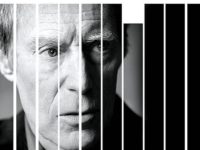Natural History, out now on eOne Music, is just the the second J.D. Souther solo effort in 25 years — following 2008’s If The World Was You. That curious quietude from such a talented creative voice has only deepened Souther’s essential anonymity. It also makes the choice to revisit his most notable compositions all the more important for those unfamiliar with his work.
Well, it turns out you know the work — even if you don’t know the name. By the end of Natural History, it becomes clear that Souther did more than sketch out an emotional landscape for the introspective West Coast country-rock sound of the 1970s. He set the template.
Recording with Nashville sessions aces like dobro player Jerry Douglas and bassist Viktor Krauss, the album lives up to its title both in the sense that it’s performed with just the sparest of accompaniment but also that it reveals and then deepens our appreciation for these important contributions. It’s a greatest hits recording, but without the baggage that goes with that — like catching Souther, who still sings with a vulnerable, close-up tenor, during a contemplative moment with his guitar.
In keeping, he lovingly reshapes songs he wrote or co-wrote that have become closely associated with more well-known artists like Linda Ronstadt, including “Faithless Love” and “Prisoner in Disguise,” as well as recent items like the Dixie Chicks’ “I’ll Take Care of You.” And he digs deeper into songs he issued under his own name: “You’re Only Lonely,” a Top 10 hit for Souther in 1979, moves further into a raw fragility — sidling right up to the heartbreaking beauty of hero Roy Orbison. He closes with a newer track, “I’ll Be Here at Closing Time,” a shattering ode to constancy that kicked off If the World Was You.
Of course, Souther’s most fruitful collaborative moment remains with the Eagles, a relationship that helped define an era.
“New Kid In Town,” a Grammy-winning No. 1 hit for lead singer Glenn Frey in 1976, is updated with a stirring, conquistador elegance. This more overt Spanish tinge gives the tune a sharper edge; it’s less melancholic, more dangerous. “Best of My Love” loses the country-rock twang that defined the Eagles’ version from 1974, which became the band’s initial charttopper. Here, Souther shucks off the sweet romanticism associated with the hit version’s vocal by Don Henley. Instead, he sounds deeply resigned, almost defeated.
Then there’s “The Sad Cafe,” the last song on the Eagles’ initial farewell release The Long Run. It remains this sharp rebuke to the fates. “I don’t know why fortune smiles on some,” Souther sings with humble grace, “and lets the rest go free.” Thinking about Souther, as the restorative and vital Natural History spins, those words have never had more emotional heft.
- Nick DeRiso’s Best of 2015 (Rock + Pop): Death Cab for Cutie, Joe Jackson, Toto + Others - January 18, 2016
- Nick DeRiso’s Best of 2015 (Blues, Jazz + R&B): Boz Scaggs, Gavin Harrison, Alabama Shakes - January 10, 2016
- Nick DeRiso’s Best of 2015 (Reissues + Live): John Oates, Led Zeppelin, Yes, Faces + others - January 7, 2016


